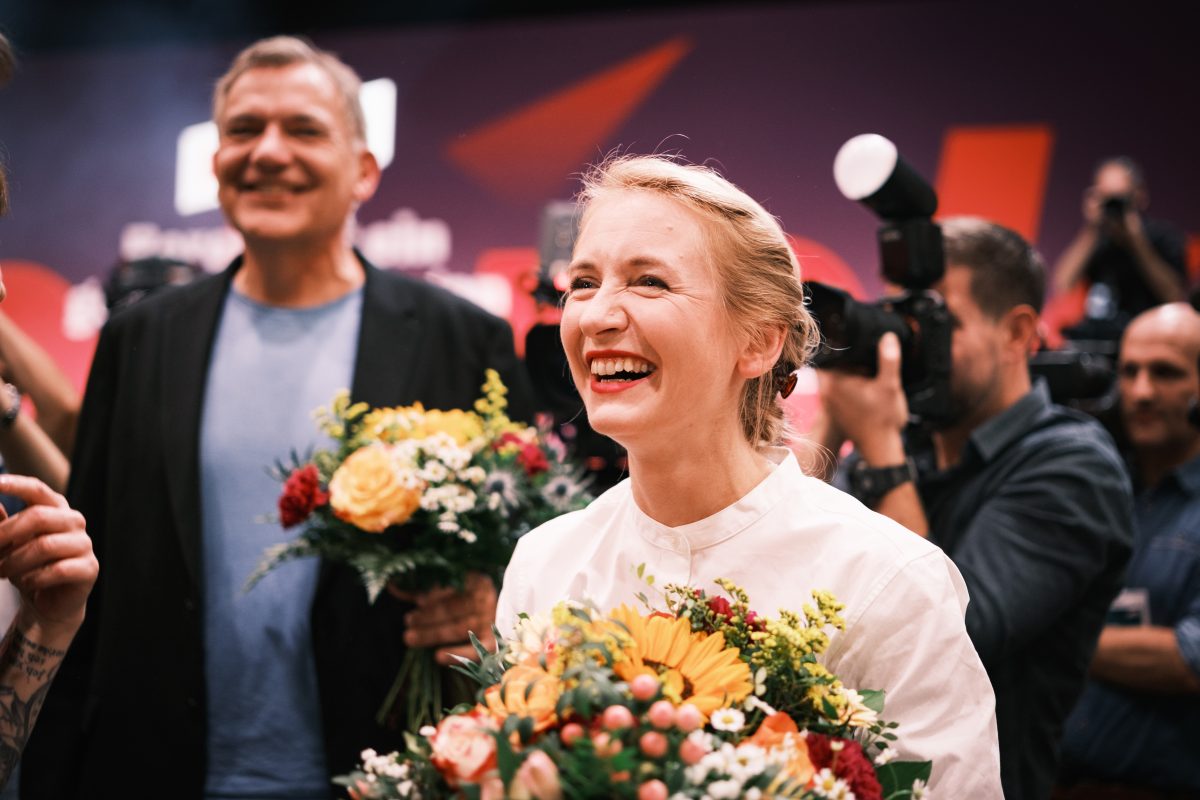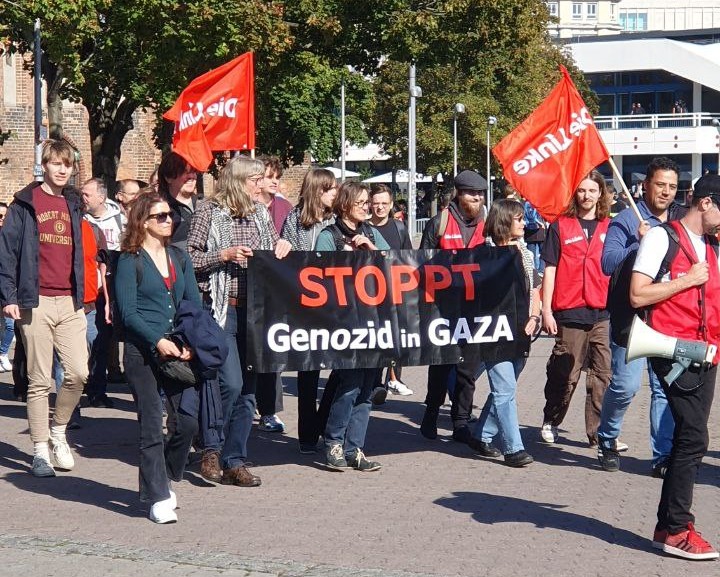I have never been as excited for a general election as I am for the one this year, and many other members of minority groups in the Netherlands feel the same way. Finally, we see a chance for a voice in parliament that will truly advocate for us.
In the Netherlands, we have a multi-party system, which usually means that no single party can get a parliamentary majority by itself. Instead, parties have to form coalitions to get to the threshold of 75 seats of a total of 150 seats. There are several benefits to a multi-party system, the most obvious one being that it is virtually impossible for one party to rule a country without regard for other parties’ interests. Making compromises – or, as the Dutch call it, ‘polderen’ – is an essential part of the multi-party system. Yet, for all their apparent differences, these parties all prioritise the welfare and comfort of those already closest to power, while the concerns and interests of those who are unrepresented / under-represented are sacrificed. This paves the way for highly racist, Islamophobic, and queerphobic policies to be pushed, with little to no interference.
The most recent example of policies that target those who are already marginalized is the ,racist child welfare scandal. Mark Rutte, the prime minister, and his government claim to have taken responsibility for the racist child welfare scandal by resigning. However, the obvious reason for their resignation two months before the elections is that none of the parties involved (which includes parties on the left) want this scandal hanging over their heads during election season.
To make matters even worse, the prime minister’s party, VVD (The Peoples’ Party for Freedom and Democracy), promises in their campaign to create a blacklist, of ‘fraudulent individuals’. Rather than addressing the exposed injustice, this will entrench the racism that helped cause it. Fun fact: the same prime minister, who has been ‘leading’ the country for the past 10 years, has been ,convicted of ethnically profiling Dutch-Somalis in 2007, back when he was the secretary of state for social services. In the last 10 years, Dutch policies, especially those targeting migrants and refugees, have also become even more inhumane. The way the Dutch system treats LGBTQIA+ asylum seekers has cost people their lives. The most recent victim is ,Angel, whose suicide was a direct result of the way she was treated by this system.
In theory, under the multi-party system, any new party that wins enough votes during the elections can get a seat, or seats, in parliament. In reality, the number of hoops a party has to jump through just to get on the ballot makes things very difficult for new parties. In the past twenty years, only eight new parties have been elected into parliament, two of which have since disbanded. Seven of them were founded and led by white people. And most of these new parties are on the radical far-right. Some are even openly fascist and follow Nazi ideology.
Then comes ,Bij1, a grassroots party, founded and led by Sylvana Simons, a Black feminist. Bij1 has no institutional support, is unapologetically anti-racist, addresses structural and institutional injustice, and is not afraid to call a Nazi a Nazi. In conversation with feminist writer ,Sophia Seawell, Simons said about Bij1: ,“We’re an activist party. It’s not that we’re a political party that sometimes joins a demonstration; it’s the other way around. We are activists who have joined forces to become political”.
Bij1 wants to immediately increase the minimum wage to 14 Euro, appoint a minister specifically to battle racism and other structural injustices, introduce free national healthcare funded by taxing the wealthy, declare climate change a national emergency and make the Netherlands carbon-neutral by 2030, dissolve FRONTEX (The European Border and Coast Guard Agency) and begin payment by the Netherlands of colonial reparations.
To say that the white supremacist, capitalist, patriarchal system in the Netherlands is stacked against a party such as Bij1 would be a gross understatement. In spite of all of this, Bij1 managed to win one seat during the local Amsterdam elections of 2018. And in the past 2 years, Bij1 has been a true advocate in the Amsterdam municipality, for those who have been made voiceless by the system.
During its short time in office, Bij1 has made significant material policy changes as well as passed significant motions showing its commitment to change. Some examples are: policy decisions must always consider the impact on the climate, vacant real estate owned by the city must be put to cultural and social use, and streets named after colonial figures will have visible signs stating any atrocities associated with them. Other measures have directly supported single parents, trans people, sex workers, and vulnerable children and students. Because of Amsterdam Bij1, I realised even more how massive the systemic issues of injustice are in my city, which is hailed as ‘the most liberal city in the Netherlands’.
But finally, with Bij1 on the ballot in all 20 electoral districts of the Netherlands, I don’t have to vote for a white liberal party that pretends during election season to care about those who are pushed to the margins of society. These parties use people from those communities as tokens and put them in unelectable low positions on their candidate lists, only to forget about them as soon as they are in office. Finally, there can, and I believe will be a voice in the Dutch parliament to advocate for those in our society hit the hardest by right-wing and inhumane policies, which have only worsened in the past 10 years.
Bij1 in the Dutch parliament will have an impact not only on Dutch politics but on those all across Europe, since European countries like Germany and France also have a multi-party system and grassroots parties such as Die ,Urbane Partei. I firmly believe a party like Bij1 getting elected into Dutch parliament will debunk the commonly accepted narrative that electability for a left-wing party means ‘not being too radical’. The alarming success of the radical right shows how misguided this is.
Am I saying that Bij1 is the perfect political party? No, because there is no such thing and it is important to stay critical. But Bij1 is a party that stands out, compared to any party in the current Dutch political climate, especially on the left. Where most parties on the left are moving towards the center, Bij1 firmly and proudly stands all the way to the left. And that is what we need right now.
Racism and Anti-racism in the Netherlands
- ,Anti-Black-Pete protest in Den Haag. Black Pete is a character in Black Face, which is part of a holiday that happens yearly in The Netherlands, Belgium, and Luxembourg.
- Protest against the 2019 law banning niqab in the Netherlands. Protesters in this picture include some of the women who spoke during the protest and people from Bij1
- Mitch Henriquez was killed by Dutch police on June 28th 2015. One officer got 6 months probation and the other one was acquitted.
- Tomy Holten was killed by Dutch police on March 14 2020. The officers were not even charged. Since 2016 at least 41 people have died during an arrest by Dutch police or shortly after and no one has been charged in any of the cases.
Addendum
Some months after he wrote this article, Axmed Maxamed made the following observation:
“As the writer of this article I’d like to add an addendum that sheds a different light on the values of the party leaders, which I now know contradicts my writing of earlier this year. Here is a short post about this.”
Axmed Maxamed is a Queer Diasporic Somali activist, organizer and music nerd. Axmed was born in Xamar, Somalia where he spent his early years until his family had to flee during the civil war and ended up in the Netherlands. He spent his formative years in Breda in the south of the Netherlands until he moved to Amsterdam. In Amsterdam Axmed co-founded ,Dance with Pride, a queer initiative which aims to re-unify dance music with its queer roots and has been raisning money for and awareness around grass roots queer initiatives, with the fund-raiser parties and sales of the Dance with Pride T-shirts. He co-curated the music compilation ,Place: The Netherlands which raises funds for and awareness around LGBTQIA+ refugees in the Netherlands. Axmed also co-organises the ,first Somali LGBTQIA+ gatherings in the Netherlands. In addition to that Axmed is involved in other queer initiatives, with focus on QTBPOC. And together with Ladan Maandeeq, Axmed started working on ‘Queer Somali Pasts and Presents: A Storytelling and Archival Research’ which will focus on the lives of Queer Somalis in the diaspora and Somalia, both in the present day and the past. Axmed addresses ,systemic inequalities in Dutch society and in the underground dance music scene, which pave the way for harmful practices such as ,cultural appropriation and the white washing of Black music.




